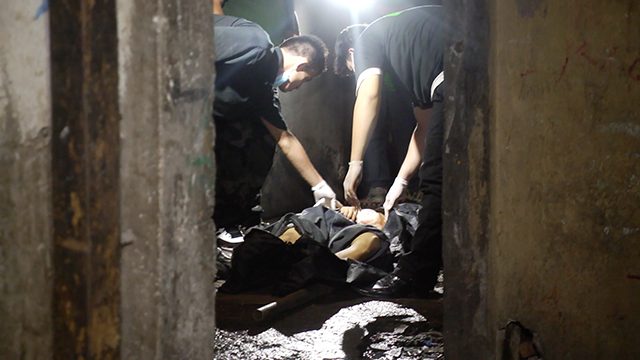SUMMARY
This is AI generated summarization, which may have errors. For context, always refer to the full article.

MANILA, Philippines – Solicitor General Jose Calida has refused to comply with the order of the Supreme Court to provide full documentation of the over 3,000 deaths that occurred during police operations in the war on drugs.
In a Motion for Reconsideration dated December 18, Calida asked the High Court to recall the order.
The order was issued during the oral arguments last December on petitions seeking to declare drug war circulars unconstitutional.
Senior Associate Justice Antonio Carpio was the first to verbally issue the order on December 5, to which Calida replied, “Yes your honor, we will embody them in our memorandum.”
Calida even requested to be given two months to produce the documents.
But Calida told the Court in the motion that the documents “contain sensitive information that have national security implications.”
“The production of documents…in the long run will have an undeniable effect on national security: it could spell the success or failure of follow-up operations of police and other law enforcement bodies, aside from endangering the lives of those on the list as well as those already in custody,” Calida said in the motion.
Included in the SC order are drug watchlists, list of warrantless arrests, or copies of the warrants of arrest, pre and post operation reports where death is involved, as well as documents related to the petitions including alleged police-led executions of 35 people in San Andres Bukid in Manila.
Carpio told Calida then, “You must know them because you’re investigating them.”
The order would test the government’s claim that it is investigating every single death in the drug war.
‘A lot to hide’
The Center for International Law (CenterLaw), one of the two petitioners, said Calida’s refusal shows the government “has a lot to hide.”
“It shows that the Respondents have a lot to hide, and no amount of legal justification will erase that in the minds of our people,” CenterLaw’s Christina Antonio said.
Antonio said they will file a comment-opposition to “convince the Justices of the relevance and importance of the documents in this case.”
Aside from invoking national security, Calida also cited procedures to justify his refusal to submit the documents to the High Court.
Calida said the SC “cannot venture into unwarranted factual inquiries” when the petitions before them only question the constitutionality of the circulars.
He also pointed out that questions on constitutionality do not rest upon whether implementors committed illegal acts.
Citing an earlier SC ruling, Calida said, “If these were so, judging from the blunders committed by policemen in cases passed upon by the Court, majority of the provisions of the Revised Penal Code would have been declared unconstitutional a long time ago.”
Calida also pointed out that the Rule of the Writ of Amparo requires that the production of documents shall be limited to those “that contain evidence relevant to the petition.”
With this move, the government appears to have extended its stringency on records pertaining to the drug war to the Supreme Court.
Previously, regional police heads were quoted as saying that Philippine National Police chief General Ronald dela Rosa prohibited them from releasing spot reports on drug war-related deaths to media.
The Commission on Human Rights (CHR) also has a difficult time accessing records.
The Department of the Interior and Local Government (DILG) announced in September 2017 that President Rodrigo Duterte instructed the PNP to share only spot reports, and not case folders, with the CHR.
The question on the constitutionality of the war on drugs pending before the SC is one of the biggest cases to watch out for.
Read highlights of the oral arguments here: Day 1 | Day 2 | Day 3
– Rappler.com
Add a comment
How does this make you feel?
There are no comments yet. Add your comment to start the conversation.